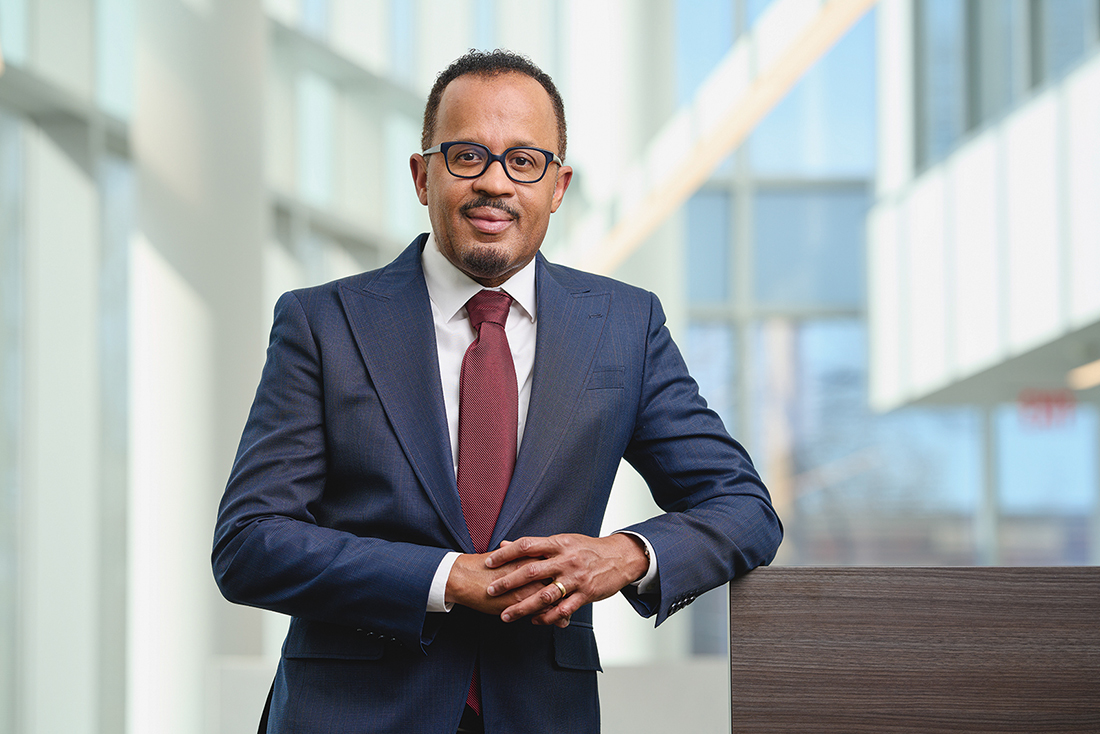lens
Embracing Collaboration
New Mandel School dean builds relationships to improve lives
 Image: Roger Mastroianni
Image: Roger MastroianniDean Dexter Voisin
Determined to help reduce the number of HIV infections in Chicago during the early 2000s, Dexter Voisin, PhD, worked on two fronts. He used his academic knowledge, practical experience and community relationships to research solutions and then, along with various stakeholders, successfully lobbied Illinois state legislators to pass a bill establishing a task force to reach youth with effective public-health messaging.
Voisin has brought that style of leadership—heavy on collaboration, advocacy and storytelling—to his new role as dean of the Jack, Joseph and Morton Mandel School of Applied Social Sciences at Case Western Reserve University.
“Social scientists have the training and the capacity to focus on broad social issues,” he said. “When we use research to illuminate complex social narratives, we can contribute to influencing policies and improving lives.”
At the University of Chicago, where he rose to be a tenured full professor at the social work school—the first person of color to do so in the school’s 120-year history—Voisin recognized he could make a bigger institutional difference as an administrator.
“We were having the same conversations about diversity, admissions and curriculum that we were having 20 years before,” he said, “and I didn’t want to be having these same conversations when I retired in another 20 years.”
Voisin has authored or co-authored more than 160 articles in peer-reviewed journals and secured more than $11 million in external research support during more than two decades in academia.
Most recently, he served as dean of University of Toronto’s Factor-Inwentash Faculty of Social Work. Under his leadership, the school experienced significant growth in international enrollment, fundraising, the operating budget, connections to civic entities and the diversity of the faculty, senior staff, and postdoctoral fellows, which increased by 44%.
Voisin strives to broadly collaborate and authentically build community relationships to promote change and avoid what he calls “the all too often colonial approach of working on or parachuting into communities.”
He wants that collaborative approach to be a hallmark of his leadership at the Mandel School.
“I am committed to working alongside university, community and civic leaders to help improve the circumstances and lives of individuals who have often been left behind,” he said.





